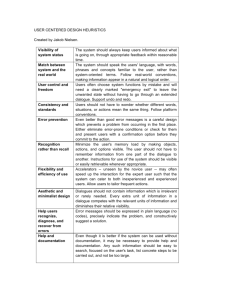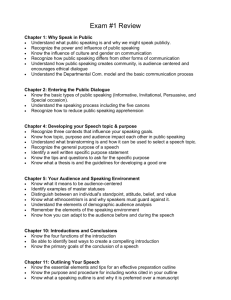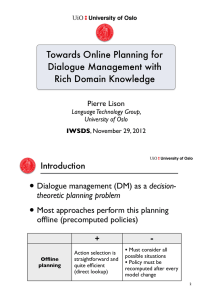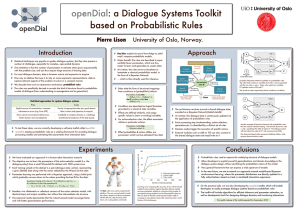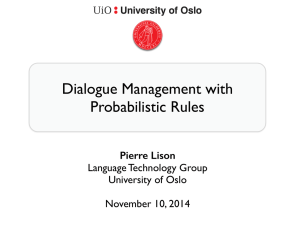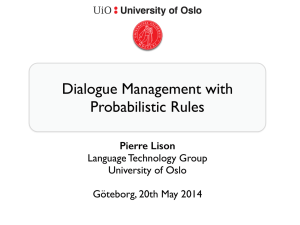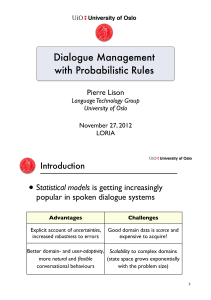OpenDial Systems with Probabilistic Rules Pierre Lison Casey Kennington
advertisement
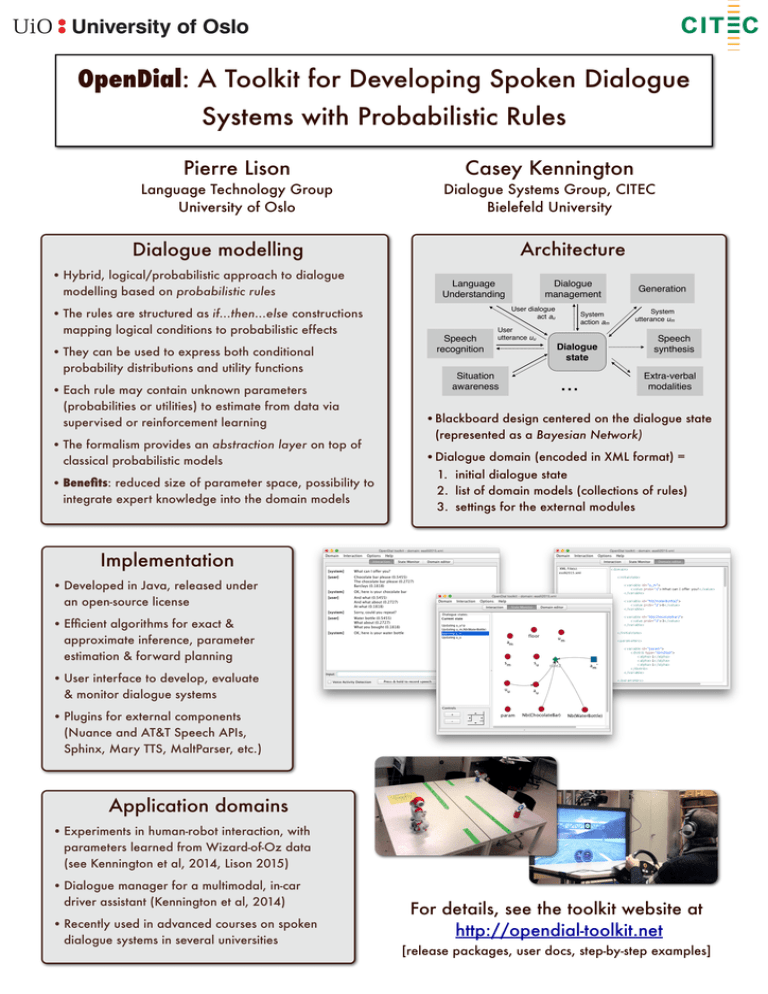
OpenDial: A Toolkit for Developing Spoken Dialogue Systems with Probabilistic Rules Pierre Lison Casey Kennington Language Technology Group University of Oslo Dialogue Systems Group, CITEC Bielefeld University Architecture Dialogue modelling • Hybrid, logical/probabilistic approach to dialogue modelling based on probabilistic rules • The rules are structured as if...then...else constructions mapping logical conditions to probabilistic effects • They can be used to express both conditional probability distributions and utility functions • Each rule may contain unknown parameters (probabilities or utilities) to estimate from data via supervised or reinforcement learning • The formalism provides an abstraction layer on top of classical probabilistic models • Benefits: reduced size of parameter space, possibility to integrate expert knowledge into the domain models Language Understanding Dialogue management User dialogue act au Speech recognition System action am User utterance uu Situation awareness Dialogue state ... Generation System utterance um Speech synthesis Extra-verbal modalities • Blackboard design centered on the dialogue state (represented as a Bayesian Network) • Dialogue domain (encoded in XML format) = 1. initial dialogue state 2. list of domain models (collections of rules) 3. settings for the external modules Implementation • Developed in Java, released under an open-source license • Efficient algorithms for exact & approximate inference, parameter estimation & forward planning • User interface to develop, evaluate & monitor dialogue systems • Plugins for external components (Nuance and AT&T Speech APIs, Sphinx, Mary TTS, MaltParser, etc.) Application domains • Experiments in human-robot interaction, with parameters learned from Wizard-of-Oz data (see Kennington et al, 2014, Lison 2015) • Dialogue manager for a multimodal, in-car driver assistant (Kennington et al, 2014) • Recently used in advanced courses on spoken dialogue systems in several universities For details, see the toolkit website at http://opendial-toolkit.net [release packages, user docs, step-by-step examples]

